Endoscopic Sinus Surgery
Sinus surgery for chronic sinusitis is a common operation performed by ENT specialists in Singapore. It is sometimes referred to as Endoscopic Sinus Surgery as the surgery is undertaken without making any external incisions and using fibreoptic endoscopes. The term Functional Endoscopic Sinus Surgery or FESS is also used which emphasizes that the surgery is minimally invasive and seeks to conserve as much of the normal nasal lining and anatomy as possible. The goal of surgery is to open and widen the natural sinus drainage pathways.
Often surgery is only recommended once conservative measures have failed. Many patients with chronic sinusitis will respond well to the long-term use of nasal steroid sprays, saline irrigation, and culture-directed antibiotics
I have written this blog for patients who have been advised to have sinus surgery. Endoscopic sinus surgery is often done with other procedures such as septoplasty and turbinoplasty. I will only discuss endoscopic sinus surgery in this blog.
Chronic sinusitis
Chronic sinusitis is the inflammation of the lining of your sinuses. Chronic sinusitis is broadly divided into two forms. The first is chronic sinusitis with nasal polyps and the second is chronic sinusitis without nasal polyps. Nasal polyps are grape-like swellings In the nose that cause nasal obstruction. One prominent feature of nasal polyps is the loss of smell. Often chronic sinusitis with nasal polyps is not associated with significant nasal discharge.

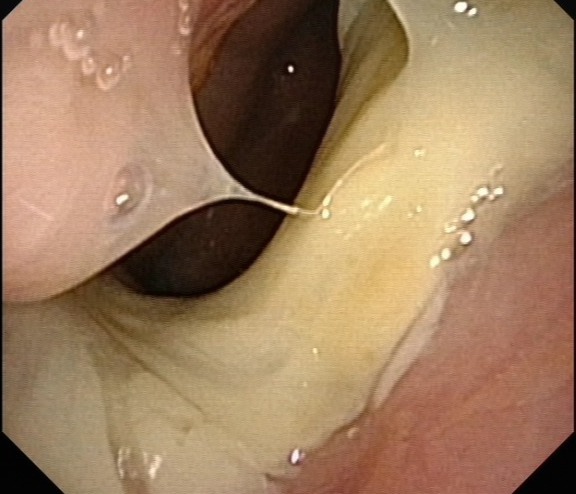
Chronic sinusitis without nasal polyps is often due to a bacterial infection. There is usually pus in the nose.
What is the treatment for chronic sinusitis?
Chronic sinusitis is usually treated with nasal steroid sprays, antibiotics, and anti-histamines. In some cases, a short course of oral steroids may be helpful. If these measures fail to resolve chronic sinusitis, your ENT specialist may recommend surgery.
Some surgeons will offer you a sinus washout procedure called an antral washout. This is sometimes beneficial but the evidence of late suggests that any relief conferred tends to be short-lived. Most cases of sinusitis that do not respond to conservative medical treatment would benefit from endoscopic sinus surgery.
What investigations are necessary before surgery?
CT scan of the nasal sinuses is extremely important before embarking on endoscopic sinus surgery. The CT scan is used for image-guided surgery which enhances the safety of this procedure. The CT scan of the sinuses is a roadmap that allows a surgeon to plan the surgery. It can also identify hazardous anatomical variants that a surgeon must be cognizant of when operating.
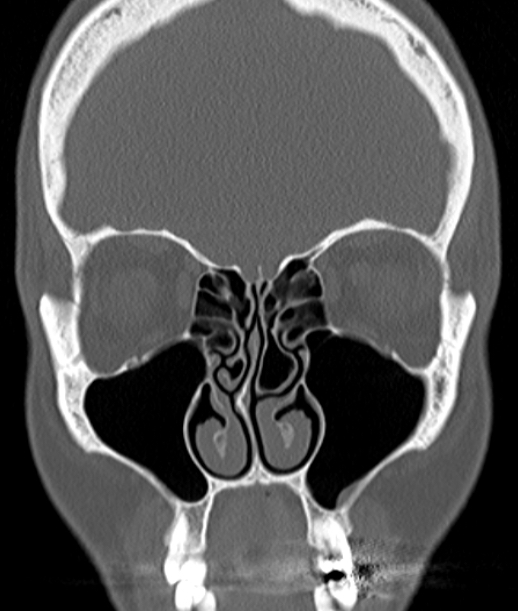
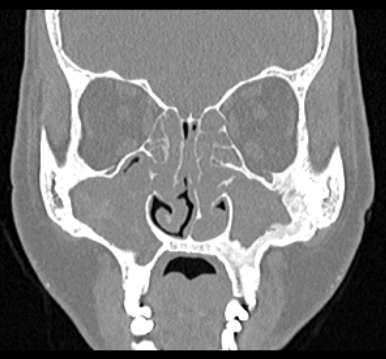
How is Endoscopic Sinus Surgery performed?
Endoscopic sinus surgery is performed under general anaesthesia. I frequently use total intravenous anaesthesia or TIVA which ensures that the blood pressure of the patient is well controlled during surgery. The nose and sinuses have a rich blood supply and a few methods are employed to reducing bleeding during surgery. These include:
- Oral steroids (Prednisolone) for a few days before surgery. This is something I often prescribed before surgery for severe nasal polyps. Oral steroids may be continued for several days following surgery. One of the side effects of oral steroids is insomnia. Some patients will feel hyperactive and others may have gastritis
- Packing the nose with cocaine solution called Moffett’s is something that is undertaken off to the patient is asleep in the operating theatre. Cocaine is an extremely good vasoconstrictor that reduces blood loss whilst having an anesthetic effect
- Adrenaline soaked gauze strips are used at the start of surgery and during surgery when bleeding is and encountered
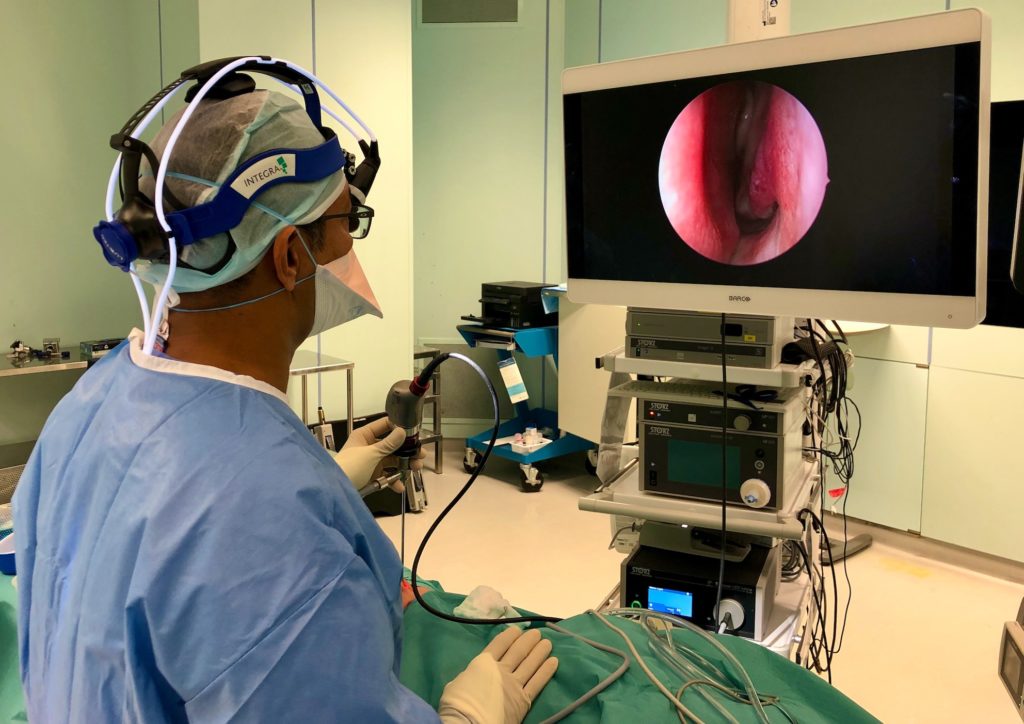
I almost always use image guidance for endoscopic sinus surgery. Image guidance employs radar technology to allow the surgeon to accurately locate the tips of his instruments in the nasal cavity and sinuses during surgery. Image guidance surgery enhances safety but is not a substitute for good anatomical knowledge. Before each case, I will study the CT images hope the sinuses in three dimensions, and work out a surgical plan.
Endoscopic sinus surgery follows a well-described sequence in which the nasal sinuses are opened in a systematic manner. There are a variety of fine instruments that are used to remove the bony partitions that separate the sinuses and widen the sinus drainage pathways. One important instrument is a powered microdebrider that sucks and gently trims the sinuses lining and bony partitions. In selective cases, the use of balloon sinuplasty allows for a more gentle dilation the sinus drainage pathways.
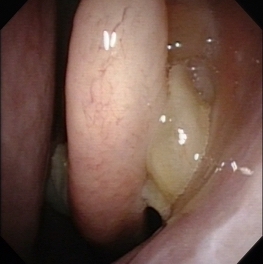
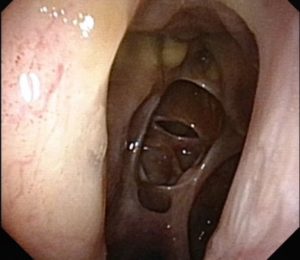
The aim of surgery is to lay open obstructed sinuses so they drain in a functional manner and not allow the build-up of mucus and pus. It also allows access to nasal sprays to have an effect on the lining of the sinuses. This is especially important in cases where allergies are severe.
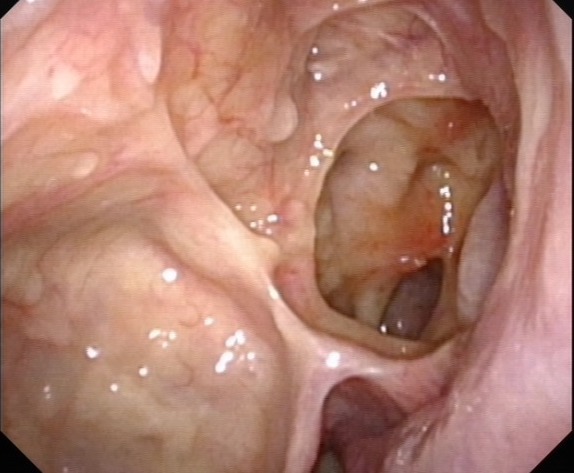
How long will the surgery take?
Depending on the number of sinuses that I need to open, surgery may take 45 minutes or almost 4 hours. Revision surgery often takes longer
How will I feel after surgery?
When you wake up from surgery, it is likely that you will have nasal packs in your nose. These are little ‘tampons’ that I placed into the nasal cavity to help stop bleeding. You will also have dissolvable nasal packing in your sinuses. As a consequence, you will not be able to breathe through your nose. You will naturally breathe through your mouth. The nurses will place a nasal bolster across your upper lip. This nasal bolster will be changed when they get soaked.
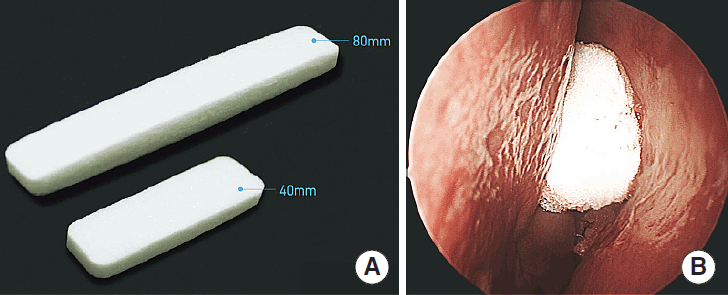
You may have a headache or pain across your nose and face. The nurses will give you painkillers for this.
Expect some bleeding from the nose following endoscopic sinus surgery. Bleeding may start several hours after surgery when your blood pressure recovers on the ward. Eating and chewing may also cause bleeding. I usually ask that patients are nurses in a head-up position after surgery and start sipping water before they take their first solid meal. Patients should not go to the bathroom without assistance. In some cases, I may insist that the patient rest in bed and uses a bedpan. We often give patients antibiotics, antihistamines and a drug that reduces bleeding (tranexamic acid).
Most patients will spend the night in hospital after endoscopic sinus surgery. The following day, I will remove the nasal packs personally. I usually ask that patients do not have their breakfast until the packs are removed. Pack removal is uncomfortable but the process is quick.
What are the complications of endoscopic sinus surgery?
No surgery is without its complications. Every effort is made to ensure that sinus surgery is safe. These are some of the complications that you should be aware of:
- Bleeding. As mentioned some bleeding is to be expected. In 1 to 2% of patients, bleeding is more profuse and the patient may need to return to theatre to cauterise the bleeding points
- Infection. A post-operative infection is fairly uncommon. It often presents several days after surgery. Extended use of oral antibiotics following surgery has reduced the incidence of post-operative infections
- Skullbase injury/Brain fluid (Cerebrospinal fluid) leak. Due to the proximity of the nasal sinuses to the skull base, a breach of the base of skull can sometimes occur. This is more common in revision surgery. The skull base defect results in the leakage of brain fluid into the nose. The patient will describe clear fluid dripping from the nose. The presentation of a brain fluid leak or CSF leak maybe immediately following surgery or may occur several weeks after surgery. The presence of a brain fluid leak increases the risk of meningitis. Should this occur, the patient will require hospitalization and often a second procedure to seal the skull base defect. The incidence of a CSF leak is approximately 0.2 -0.8%
- Eye complication. Injury to the tear duct, eye muscles or optic nerve are rare complications of sinus surgery. These occur in approximately 1 in 10,000 cases. In some patients, the bony wall betwen the sinuses and eye are dehiscent so bruising around the eye (akin to that after a punch to the face) may occur
- Change in smell. A reduction or loss of smell in an uncommon consequece of sinus surgery. Most patients wiith sinusitis already suffer from the loss of smell. It is important to mention to your surgeon if smell is an important sense in your profession. Wine tasters, and perfurmers are warned of the possible change in their olfactory acuity
- Voice change. The sinuses are important determinants of vocal resonance. Following sinus surgery, your voice may sound different to your loved ones. This is especially evident over the phone
How long will it take to recover?
I often tell patients that they will feel like they have a bad cold for 2 weeks. The sinuses actually take anything from 6-8 weeks to heal completely. However, most patients will be back to most activities by the second week of their convalescence. Returning to work is very dependent on the nature of your job. Most office-based workers will probably need only 5-7 days off. Students are best to stay away from crowded classrooms for 7 days
What aftercare is necessary?
Following discharge, patients are advised to avoid any form of exertion for 2 weeks. You will be asked to complete a course of antibiotics and possibly steroids. Painkillers should be taken as required and need not be consumed routinely. I routinely give patients a saline nasal spray (sterimar) which is to be used regularly for the first week. Thereafter, nasal saline irrigation with Neilmed Sinus Rinse is necessary. In most cases, a small solution of steroids (Pulmicort Respules 0.5 mg/2ml) is added to the sinus rinse.
Some bleeding and blood-stained nasal discharge after surgery are common. If this is profuse, do contact the clinic or the emergency department in the hospital where you had the surgery.
Activities to avoid
- High intensity exercise and weight lifting for two weeks
- Nose blowing for 1 week
- Swimming for 2 weeks
- Hot food and fluid for three days
- Blood thinning medication for two weeks (or as advised)
- Picking your nose or using tissues to clean your nostrils for 1 week
Post-operative clinic visits (Nasal toileting)
I will usually see my patients 3 times in the first two weeks after surgery and then fortnightly until I am satisfied that the nose and sinuses are well healed. These visits will almost always involve what we call nasal toileting. The nose is anaesthetised with a spray or soaked cottonoid patties and then suctioned with the aid of an endoscope. The purpose of this is to remove any crusts and slough from the sinuses and also remove any residual nasal packing.
If you have any questions about endoscopic sinus surgery do email us at enquiry@entclinic.sg. My training and philosophy about sinus surgery is largely based on my training in London, UK. My mentor Professor Valerie Lund of the Royal National Throat Nose and Ear Hospital imbued an evidence-based approach to the management of sinus disease. Endoscopic sinus surgery is just one arrow in our quiver and not all sinus disease should be managed surgically.
END
Share this blog via:







